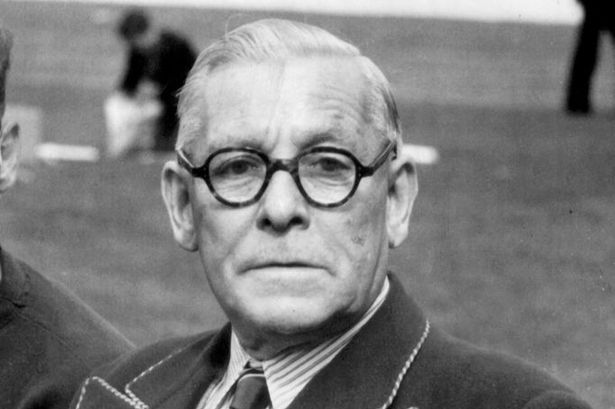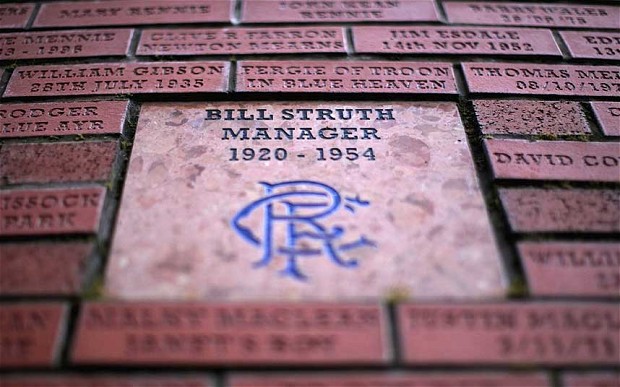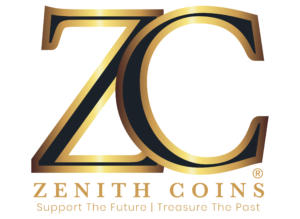1) Bill Struth was not a footballer as such – born in Milnathort, Kinross-shire in 1875 he learned his trade as a stonemason whilst excelling at athletics as a professional middle-distance runner. It was a hard life, and he no doubt welcomed the approach by Hearts to take up the post of Trainer at Tynecastle. He had lived much of his early days close to the Gorgie ground – yet his time there was brief, answering a call from Clyde to move to Shawfield in 1907.
2) He had a massive impact at Clyde taking them to unsuccessful Scottish Cup Finals in 1910 and 1912, losing to Dundee and Celtic respectively. In all the two finals ran to four games, ironically all played at Ibrox.
3) He arrived at Ibrox in 1914, and would serve the club as Trainer, Manager and Director for fully 42 years. His 34-year reign as Manager from 1920-54 is a club record that will surely never be equalled.
4) Struth made an immediate impact at Ibrox, working closely with Manager William Wilton but within three months of taking up the cudgels down Govan way the world was turned on its’ axis with the outbreak of the Great War. Both Struth and Wilton threw themselves into the war effort, aiding the wounded at the nearby Bellahouston Hospital. Struth would develop his skills in Physiotherapy during the war, and when peace was declared in 1919 the return to normality saw Rangers secure the League Championship in 1919-20.
5) Bill Struth always had an eye for a player. His first signing as Ibrox Manager was the legendary Alan Lauder Morton from Queen’s Park. It was one of the most important transfers in the club’s history.
6) He lived in a flat overlooking his beloved stadium at 193 Copland Road.
7) The traditional Ne’erday derby clash with Celtic was always one of the major fixtures in the calendar. Struth lost his first one as Manager in 1921, 0-2 at Ibrox – he would never again lose another one at home throughout his Ibrox reign, excluding the war years.

8) He may at times have cultivated the image of being a strict disciplinarian, but the Rangers’ Manager had a soft side to him. When Rangers faced Morton at Hampden in the 1922 Scottish Cup Final, the Light Blues were dealt a critical injury blow when Andy Cunningham suffered a broken jaw after just twenty minutes. Struth accompanied his player to hospital, concerned for his captain’s welfare. That was more important to him than the loss of another Scottish Cup Final.
9) Struth must have suffered so many agonies in the national tournament. He tasted defeat in his first four finals – two with Clyde, two with Rangers. He would compete in no fewer than sixteen Scottish Cup tournaments without success before 1928 – but would make up for it with ten triumphs in the next twenty.
2) He had a massive impact at Clyde taking them to unsuccessful Scottish Cup Finals in 1910 and 1912, losing to Dundee and Celtic respectively. In all the two finals ran to four games, ironically all played at Ibrox.
3) He arrived at Ibrox in 1914, and would serve the club as Trainer, Manager and Director for fully 42 years. His 34-year reign as Manager from 1920-54 is a club record that will surely never be equalled.
4) Struth made an immediate impact at Ibrox, working closely with Manager William Wilton but within three months of taking up the cudgels down Govan way the world was turned on its’ axis with the outbreak of the Great War. Both Struth and Wilton threw themselves into the war effort, aiding the wounded at the nearby Bellahouston Hospital. Struth would develop his skills in Physiotherapy during the war, and when peace was declared in 1919 the return to normality saw Rangers secure the League Championship in 1919-20.
5) Bill Struth always had an eye for a player. His first signing as Ibrox Manager was the legendary Alan Lauder Morton from Queen’s Park. It was one of the most important transfers in the club’s history.
6) He lived in a flat overlooking his beloved stadium at 193 Copland Road.
7) The traditional Ne’erday derby clash with Celtic was always one of the major fixtures in the calendar. Struth lost his first one as Manager in 1921, 0-2 at Ibrox – he would never again lose another one at home throughout his Ibrox reign, excluding the war years.

8) He may at times have cultivated the image of being a strict disciplinarian, but the Rangers’ Manager had a soft side to him. When Rangers faced Morton at Hampden in the 1922 Scottish Cup Final, the Light Blues were dealt a critical injury blow when Andy Cunningham suffered a broken jaw after just twenty minutes. Struth accompanied his player to hospital, concerned for his captain’s welfare. That was more important to him than the loss of another Scottish Cup Final.
9) Struth must have suffered so many agonies in the national tournament. He tasted defeat in his first four finals – two with Clyde, two with Rangers. He would compete in no fewer than sixteen Scottish Cup tournaments without success before 1928 – but would make up for it with ten triumphs in the next twenty.
10) Bill Struth never forgot his links with the athletics world. His work ensured that the Annual Rangers Sports Meeting was one of the top events in the UK. He also invited Olympic Gold medalists Eric Liddell and Harold Abrahams (both featured in the film ‘Chariots of Fire’) to train at Ibrox, which they frequently did. Liddell indeed was a lifelong ‘Gers fan and club member.
11) For many years Struth lovingly tended to plants in a greenhouse loacted at the rear of the Broomloan Road Terracing. Not once was it damaged by Celtic fans, who occupied that area during ‘Old Firm’ games.
12) Something of a ‘Beau Brummel, the Ibrox Manager had a fully-stocked wardrobe in his office with a row of suits stacked along the rail. He would frequently wear more than one in the course of a single day
13) One fine day at Ibrox a canary flew through an open window into the Manager’s office – and made its’ home there. A cage was quickly produced, suspended from a hook by the window. The little bird lived a long life, occasionally sustained by a drop of the hard stuff…
14) During World War Two, as Bill Struth and his secretary worked late into the evening inside the Stadium, they were interrupted by the arrival of two Canadian servicemen who were stationed nearby at Bellahouston Army Camp. The Ibrox Boss gave them a conducted tour of the ground. It was mid-1944, and they were about to go on active service with their regiment overseas. Struth invited them to return to Ibrox when the conflict had ended, but sadly they never would. It is believed they perished on D-Day at Omaha Beach.

15) Struth once performed an emergency dressing-room operation on a player’s soft corn using a sterilised penknife.
16) Struth was a martinet. He insisted that Rangers’ players should be properly attired at all times, even to the extent of sending them away if their dress was not considered suitable. Sometimes the club’s outfitters would be instructed to clothe a player, and the cost deducted from his wages.
17) Two of his ‘boys’ went on to follow in his footsteps as Ibrox Manager – Scot Symon and Willie Waddell.
18) In his final days, Bill Struth specifically requested a visit from just one of his ‘old boys’ – that player was Billy Williamson, who had a remarkable Scottish Cup record – his first two goals were the 1948 Final Replay against Morton and the 1949 Final against Clyde. Both were won, and ‘Sailor’ Williamson scored in both. Two games, two goals, two winners’ medals. Hard to beat…
19) Such was the esteem and respect in which Struth was held that when his death was announced on the eve of an ‘Old Firm’ game at Celtic Park the one-minute silence was immaculately observed.
20) At Bill Struth’s funeral, his coffin was borne by six of his former players.
ROBERT McELROY [Editor of ‘THE RANGERS HISTORIAN’ magazine]
Discuss this article
Enjoyed this article? Disagree entirely? Found a spelling mistake? Whatever your opinion, it's welcome on our popular and friendly message-board.











